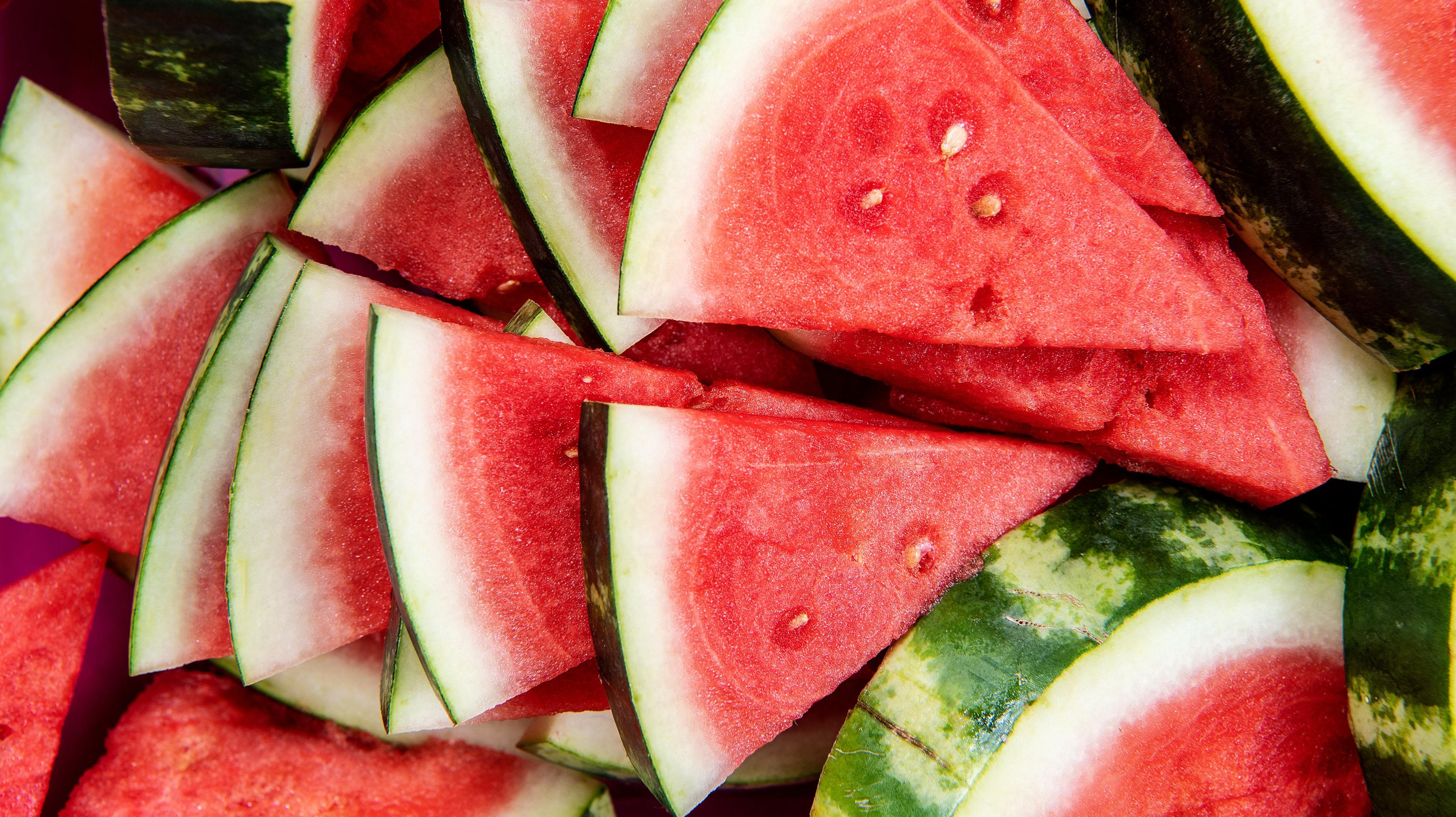Watermelon And The Seeds Of Black Freedom
Watermelon is embedded within African American history in complex ways.
Welcome to Flavor & Soul: A Brief History of African American Food. We'll be taking a closer look at one dish each week and tracing its roots within the African American cooking tradition.
There's nothing like the sweet, cooling taste of watermelon to top off the spicy and well-seasoned dishes at a cookout. After eating generous amounts of heavy dishes like barbecue, potato salad, and greens, the sensation of watermelon juices sliding over your tongue and dripping down your hands is so refreshing. For many African Americans, enjoying watermelon in the summer heat is an essential joy; it's a ritual that has concluded Juneteenth and outdoor cookouts for generations.
Simple slices of ruby-red watermelon is the classic presentation, but I have also sipped watermelon juice mixed with ginger and relished slushy watermelon ices and watermelon salad dressed with basil and lemon juice. I love watermelon in any form—yet it's a problematic fruit for many Black people. The pervasive Jim Crow stereotype of Black people lolling around gorging themselves on watermelon has never really gone away, not in the media and not in the memory of many African Americans.
I have a friend who refuses to eat watermelon at all on the principle that it supports an ugly stereotype. When activists protested the killing of Michael Brown by marching from Ferguson to Rosebud, Missouri, on their way to Jefferson City, they were subjected to a street display of fried chicken, malt liquor, a confederate flag, and a watermelon, as the locals yelled racist jeers. Indeed, historian and James Beard Award–winning food writer Cynthia Greenlee wrote an entire essay on how the racist imagery associated with the fruit made her hesitant to eat it in front of white colleagues.
I've known for a long time that watermelon originated in Africa and was brought to North America on slave ships and to Europe by the Moors. What I didn't know was how the stereotype of eating watermelon developed. According to historian William R. Black, the trajectory is a little more complex than I expected. After emancipation, growing and selling watermelon was a popular business for free Black people; the fruit developed into a symbol of independence and freedom, which explains why it's typically included in Juneteenth celebrations. But the selling and free enjoyment of watermelons by Black people was seen as a slap in the face to their former enslavers, who resented the enterprising spirit of the formerly enslaved.
Eventually, watermelon became a symbol of that resentment, and all the reasons that Black people didn't deserve freedom. Surely, enslavers thought, a fondness for such a messy fruit that required little effort to grow pointed to people who still needed guidance and oversight. The message was clear: that the Black people who had built the wealth of the nation with their free labor were seen only as lazy and shiftless post-emancipation. It makes no sense to me, but by the turn of the 20th century, the images of Black people eating, carrying, or coveting watermelons were everywhere, from sheet music to cartoons to toothpaste. And while those racist depictions might have fallen out of favor over the past few decades, the sentiments behind them have not.
After discovering the history behind the watermelon stereotype, I have found that my relationship to this fruit hasn't changed. In fact, it makes the sweetness of the juicy melon even more enjoyable for me. Now, as I eat a slice of watermelon, I am reminded that it helped usher in a movement of self-sufficiency after enslavement for many Black people, and no ugly imagery can wipe that away.
